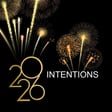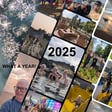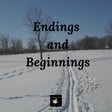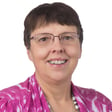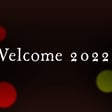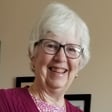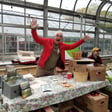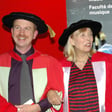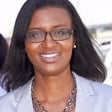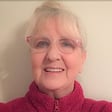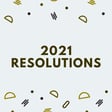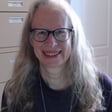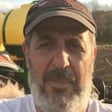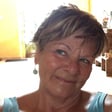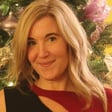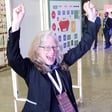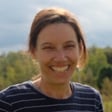Become a Creator today!Start creating today - Share your story with the world!
Start for free
00:00:00
00:00:01

Getting history right with Irene Moore Davis
This is my interview with Irene Moore Davis, a woman who descends from Black pioneers settlers who lived in Southwestern Ontario in the nineteenth century. She speaks, teaches and writes about Black history, equity, diversity, and inclusion and will publish a book about the history of African-descended people in Windsor and Sandwich soon.
Transcript
Introduction and Beginnings
00:00:02
Speaker
My name is Tracey Ariel and I am an apologetically Canadian. Hello, and today we are speaking with Irene Moore Davis. Hi Irene, how are you doing? I'm well Tracey, how are you doing? Not too bad. No, we met online because we were both part of a writer's write-in session.
00:00:27
Speaker
with Van Waffle. It was so much fun.
Teaching and Courses
00:00:30
Speaker
And you were talking about all the projects that you are doing at school in connection with the Underground Railway and hip-hop and all sorts of really cool things. Can you just describe what it is you do? Because you are a poet. What the heck are you doing teaching stuff?
00:00:47
Speaker
So I am an administrator and instructor at St. Clair College in Windsor, Ontario, where I teach English and history and race relations related anti-racism courses. And I have a new course that I will be offering in the following semester called Hip Hop Culture and Social Change. So I'm excited about that.
Preserving History
00:01:10
Speaker
Outside of my work, I'm president of our local Black History Society.
00:01:15
Speaker
and an author, and I love to write poetry. I love to write about Black history. I do a little bit of long-form journalism for just local magazines, and I really enjoy teaching and presenting to people about Black history and diversity and inclusion.
00:01:37
Speaker
all over town. And thanks to the pandemic, which is a very sad thing, obviously, I've been doing a lot more virtually across the country, too. So that's been an interesting outcome of our current situation. And I've also just executive produced a documentary with my dear friend Heidi Jacobs, and it's called The North Was Our Canaan, and it is about the Underground Railroad history of Sandwich, Ontario.
00:02:04
Speaker
Yeah, which you gave me a link to and I'll put that definitely in the show notes. That's such a fascinating story. I know a little bit about it because when I worked for the Ontario Ministry of Tourism, we did a lot of underground railway stuff and sandwich was on that tour.
00:02:21
Speaker
Yeah, for sure. It would have been. It's a really important place in terms of that history. It is, it is. So it's a college course. What are the people who are taking the course usually? Why are they taking it? What do you see normally in your classroom? So the Underground Railroad History course that I've been teaching for the last eight years or so is something that
00:02:45
Speaker
It exists as a general education humanities and social science elective. So all kinds of people take it. There are some students who are just looking for an elective and it fits into their schedule. But what I hear from a lot of students is that they have always heard a little something about this history. They think it's really interesting that there's a whole course devoted to it for a semester. They want to know more.
00:03:09
Speaker
Some of them have come from places like Windsor or Sandwich or Harrow or Colchester or Amherstburg here in Ontario, places that have quite significant underground railroad history connections, but they've just never had an opportunity to learn much about it. Or in some cases, I'll hear from students saying, you know, my grandmother told me that we're underground railroad descendants, but I'd like to know much more about that because my family doesn't have a lot of details. And I love when I have students of all of those categories. They all learn from each other.
Racism and Resilience in Canada
00:03:38
Speaker
And they come away with a much deeper sense of this piece of history that's really germane to this region of Southwestern Ontario in particular. Yeah, well, and it's actually very important in a lot of places in Canada too, because I know that there's quite a lot of background here in Montreal and then in the Eastern townships and of course, Nova Scotia. I mean, there's a, and the idea that Canada can mean freedom for so many people and that we're not generally aware of it is just shocking to me.
00:04:09
Speaker
It's such a great story for our country. It really is. I mean, it's complicated. I mean, as someone who is a descendant of the Underground Railroad and as someone who studies that history quite a bit and is always learning more about it, I really do want to give our country credit for the amazing role that we played in helping as many as 30,000 people, according to Government of Canada estimates.
00:04:38
Speaker
make their way to freedom, find freedom here, live here in Canada in safety from US slave catchers for the most part. And at the same time, I'm also very conscious of the extreme racism, the brutal discrimination that people found when they came here and how sometimes we overlook that part of the story. And we just, you know, we think we, you know, rolled out the welcome mat and made everyone feel special and part of Canadian culture.
00:05:05
Speaker
when that wasn't quite the situation either. So one of my favorite things to study about the Underground Railroad communities in Canada is actually the forms of resistance that they engaged in to change their circumstances once they got here and to become more fully engaged in Canadian society. You know, I look at stories of these formerly enslaved folks who arrived here, wanted to enroll their kids in school because education had been denied to them their entire lives previously.
00:05:32
Speaker
and found that they were not able to enroll their kids in school, so they engaged in fundraising to open up their own schools, or they would seek the help of those who could write for them or transcribe their thoughts, and they would write petitions and letters.
00:05:47
Speaker
to the colonial government to get access to education for their kids or they would use the court system. And I mean, that's pretty remarkable for people that just shortly before that had been enslaved individuals in America. So I love that part of the story too, because folks came here and they had grit and courage and they were determined to make the best of it.
00:06:08
Speaker
the racism and everything has stopped either. I mean, one of the stories here that we have here in Verdun is a man who was kicked out of a bar and took it to court. That's one of the Supreme Court. And he actually lost. So it's like one of the, this is a negative part of the history. And that was only in the 1950s. So it's not like this has been any better, you know?
00:06:34
Speaker
Where I'm from in Southwestern Ontario, there are many stories very much like that.
Cross-Border Cultural Connections
00:06:39
Speaker
It didn't go all the way to the Supreme Court necessarily, but there were many stories of people fighting against segregation and discrimination and using the press, using public opinion, shining a light on businesses and institutions and organizations that were denying them access. And I just give so much credit to those folks who had the courage to do that.
00:06:59
Speaker
Yeah, well, in your case, you're also doing your own podcast, which is kind of interesting. So you're sort of that makes you part of the media these days. Although your podcast is about writing, right? That's right. So for about the last 15 years, I've been part of Bookfest Windsor, which is our local literary festival here in Windsor, Ontario. And through that, I made some really excellent friends who are also just
00:07:25
Speaker
just as excited about literature as I am. And so with two of those friends, Sarah Jarvis, our longtime chair of Bookfest Windsor, and Kim Conklin, another planning committee member, we set up back in 2019, a podcast called All Right in Sin City, W-R-I-T-E. And it focuses on writers and writing.
00:07:48
Speaker
in the Detroit River region, including both sides of the border. Because we really, in this part of the country, see ourselves as a transnational community that's on both sides of the Detroit River. We're a lot more like people in Metro Detroit than we are like people in Toronto or Ottawa, for example, or Montreal.
00:08:07
Speaker
we have a tendency to have this wonderful cross border culture in terms of the art scene, the literary scene, the music scene and so on. And so we formed this podcast and we focus on writers from both Canada and the US who are part of this region and on all of the great books and poems and plays and things that they're publishing. And we're just so excited to shine a light on that because there have been in the past a lot of
00:08:32
Speaker
instruments and media that focused on either the Detroit side of the writing or the Windsor side of the writing, but never together as a whole. The Sin City part of our title relates to our very interesting regional history.
00:08:47
Speaker
when both Detroit, Metro Detroit, and the Windsor region were known as Sin City due to our prohibition era activities and our general scandalousness. We're a scandal-ridden cross-border community in many ways, and we love it. So we have capitalized on that and are celebrating it. The Montreal community can really relate to that part of your history too, I think.
00:09:10
Speaker
And what's interesting about about that whole the cross cultural thing I sort of got a taste of that because my first book was about Canadian Vietnam veterans and there is a very important wall in Windsor.
00:09:25
Speaker
And walking through, I was astonished in that park how many symbols there are linking communities on both sides of the border. There's something, you know, brownies and, you know, everything you can think of in terms of a community and what they do, there is some sort of monument to it in that, in Ambassador Park. Absolutely. And I mean,
00:09:47
Speaker
To that point, in terms of our original topic, the Underground Railroad history, that's so true. I mean, the Underground Railroad would have never been as successful as it was had people on both sides of this Detroit River region not wanted to collaborate, work together, send messages about how many folks were arriving, how to find them, where to pick them up, how to get them to safety.
00:10:09
Speaker
how to help them settle, the joint fundraising that happened across both sides of the border to help refugees from American slavery settle, all of the things that happen to form cross-border organizations to keep them safe, vigilance communities and things of that nature. And to this day, we have in Windsor and Detroit, the world's only international monument to the Underground Railroad, which is literally
00:10:33
Speaker
two separate monuments on either side of the river designed by the same sculptor, Ed Dwight. There's the Tower of Freedom here in Windsor. There's the Gateway to Freedom in downtown Detroit. They're part of the Vine National Monument. And together, they tell the story of the Underground Railroad. And that's just one of those fascinating things about this place. We really do refer to and embrace one another across both sides of the river very much. Yeah, no, it's a really fascinating place.
00:11:02
Speaker
What's interesting about the connections that you make with some of the communities is that it really shows how an ecosystem works as a circle around where
Contested Memories and Historical Reflections
00:11:12
Speaker
you are. There are no borders in an ecosystem. Yeah, that's right. But can you tell me a little bit more about your own projects?
00:11:24
Speaker
because I think it's really fascinating like I'm looking at the you know you just send me oh you know there's there's a couple of things and and you really are um you're a very knowledgeable person when it comes to all sorts of regions in the country for example the faux historical plaques in Toronto which uh
00:11:46
Speaker
I didn't even know anything about that. My family's not that far outside of Toronto, too. So I'm surprised I didn't hear about it. Yeah, I mean, that was a fascinating thing that happened in the summer of 2020. So back in June, when the media were kind of seizing upon Black narratives and stories connected to the Black community, someone from CBC locally reached out to me and said,
00:12:15
Speaker
Hey Irene, can you do an interview talking about the history of slave ownership in Windsor and Essex County? And I said, sure, when you want to do that? And he was like, are you free in like half an hour? And I said, sure. So I was
00:12:27
Speaker
sitting on my deck and I did this interview about the history of slave-owning families here in Windsor and Essex County and how we have many street names and place names and public buildings and things that are named after these slave-owning families who are considered some of the founding families of Windsor and Essex County
00:12:48
Speaker
And they did engage in a lot of really admirable exploits, but they also gained a great deal of wealth on the backs of their enslaved African and indigenous people who were living with them against their will and captivity and doing all of this work. So as part of that CBC story, I said something to the effect of who we lift up and who we name things after, who we recognize, who we value says a lot about
00:13:16
Speaker
what we value and what we hold dear in our society. And I was saying that in reference to these street names and place names and parks and places that are named after these slave holding families. So because of the times in which we were living, that story kind of went viral and people were learning a lot more about slave ownership in the history of slavery in Canada. And someone in Toronto saw that CBC piece and picked up on it and started doing some research on slave holding families in the Toronto area.
00:13:46
Speaker
And before I knew it, I started hearing from people that I know in Toronto saying, Hey,
00:13:51
Speaker
Do you know that you're quoted on these plaques around here? I said, what? And it was true. People started to send me pictures in a neighborhood of Toronto, a pretty nice neighborhood called Bobby Point, although they call it Babbie Point, named after the Babbie family, who were also slave owners here in Windsor. They also had slaves in Toronto.
00:14:19
Speaker
And they were quite a wealthy family and very involved in the military and in government. And so this neighborhood is named after the Bobby family. And so someone had started placing these faux historical plaques around that neighborhood saying, this is the true history of the Bobby family and their slave ownership in the late 18th and early 19th century.
00:14:43
Speaker
Then someone pointed out to me that there was another plaque, another set of plaques quoting me on Jarvis Street in Toronto regarding William Jarvis and the Jarvis family's history of slave ownership. And they both had the same quote from my CBC article and my name at the bottom so that there were people who thought that I was putting up these quotes.
00:15:06
Speaker
And I said, listen, if I were going to be a Black history Banksy and start putting out plaques guerrilla style, I certainly would not implicate myself by naming myself on that. That's a little bit bizarre.
00:15:21
Speaker
I've seen enough crime, you know, crime, criminal investigation shows to know that you don't do that. Anyway, so I mean, the person I have to say the person was putting up these really beautiful temporary faux plaques that look a lot like real historic plaques that actually had footnotes and I mean, amazing historical plaques never have footnotes or endnotes, but this person was doing that. Yeah.
00:15:47
Speaker
And so, and so this person was putting them up without authorization and that was kind of part of the problem, but they were doing it to prove a point that we don't know enough about these streets and places and the folks after whom they're named. And subsequently, the person also put up some plaques about Peter Russell, who was another pretty heinous slave owner from the Toronto area and who incidentally also
00:16:11
Speaker
named a couple of streets after himself when he came down here to sandwich, to buy the land, and set it up as a town for our United Empire loyalists.
00:16:21
Speaker
So through that, there was this really interesting thing that emerged, which was all of these media folks reaching out and saying, what do you know about this person? What can you tell us? No, I didn't know anything. I was just, I was amazed. So I used social media myself to say, hey, if you're the person that's doing this, please reach out to me privately and I'd love to be in touch.
00:16:47
Speaker
But I mean, that tweet of mine that was asking for someone to come forward and just messaged me directly got something like 6,000 retweets, which for me is a lot. I'm not a celebrity. Yeah, no. Oh, you are now, apparently, at least in Toronto.
00:17:06
Speaker
Oh, it's been really interesting. I mean, I do now know who the individual is. The individual did eventually come forward, and I will not name them, but it's a person who is conscientious, who wants to right the historical wrongs and make sure that the true narratives are out there. It's a person who's not of African descent, I will say, but who loves history and just thought that this was an interesting project to bring attention to the real stories of some of these families that are considered the founding families.
00:17:34
Speaker
And so now, certainly, simultaneously, there are lots of conversations happening around Canada around contested memory and whether we should have monuments to people who are slave owners, whether we should have streets named after them or towns named after them or what have you. And I think this person has given a little bit of extra steam or a little bit of an extra push to those conversations. And I'm happy to say that the folks who are, you know, the neighborhood association of the Bobby Point area in Toronto,
00:18:04
Speaker
have themselves approached Toronto City Hall and are working with them directly to try to create some permanent plaques that are about the real history of that name. So that's a great outcome. Oh, isn't that a fabulous outcome? What's your opinion about that? Because I actually love the idea of adding plaques so that you can have a very contextual background to people. They weren't just good, they weren't just bad, but they were mixed. And especially when you have such a prominent
00:18:33
Speaker
a family that has benefited from the prominence for so long. I mean, those are the ones that you'd need to actually mark out. That's my opinion. But I don't know, what do you think? You're much more in this issue and you've been thinking about it very deeply. What's your opinion about what we do about these?
00:18:51
Speaker
Yeah, I mean, I have to say that where someone has engaged in actual genocide or something of that nature, we do not want to lift up those names. So I completely understand that there are people who no longer want to have statues to Confederate generals. Or I understand that there are people who have real concerns about John A. McDonald and his treatment of indigenous peoples. And those are important conversations for those individuals in those communities to have.
00:19:19
Speaker
To me, in my mind, and what I've said to the media as well, is that if there is a street named after a founding family that did a bunch of good stuff but also had enslaved individuals, we neither want to erase the history by getting rid of those names nor sweep the bad stuff under the carpet. So to whatever extent we can add to the signage, add to the storytelling, make sure that people have a more complex and comprehensive understanding
00:19:48
Speaker
I think that's a good thing to do. And so down here in Windsor, Ontario, what I'm doing right now and what our history society is doing right now is we're working with the City of Windsor to add some signage to those street signs, you know, on those poles where the street signs are, and especially at major intersections.
00:20:09
Speaker
to tell more of the story and also to include a QR code that people can scan with their cell phone that will take them to the website that gives them much deeper history of those families because they did do good stuff. I mean, that's why they're considered the founding families and at the same time,
00:20:24
Speaker
We can't ignore in our present day the really heinous things that they did, all of the buying and selling and capturing of these indigenous and African enslaved people and frankly abuse. I think about a street here in Windsor called Labadee. One of my very best friends lives on that street. I don't really want her to have to change her address, but
00:20:47
Speaker
And I know some people who are descendants of the Labadee family, but notwithstanding all of that, Labadee was an important individual in our local history and there's no denying it. And at the same time, Labadee owned all of these enslaved people and in his will, he specified that his wife should, his widow should get to keep her two favorite slaves and that the rest should be divided up and the proceeds divided among the children.
00:21:14
Speaker
And what's really sad about that is those were families. Those were intact families that he was saying in his will. He wanted to split up and sell off so that his kids could split the revenues. Did he actually name the kids he was splitting up? Oh, absolutely. I mean, that's one thing about the pretty comprehensive records that we have of enslaved individuals in this region at least. We do know their names. We know their names. And oftentimes we know their ages.
00:21:42
Speaker
Oftentimes we know who was the parents of what other enslaved individual.
00:21:48
Speaker
individuals, often the often the enslavers were the godparents when the enslaved kids would be baptized at our local churches, some of which are still around. So I mean, there are a lot of records and it is very sad when we see, you know, you can follow certain individuals and see how they're sold from one family to the next how they're suddenly yanked out of Windsor and taken to Toronto and, and they leave their loved ones behind. And so
00:22:15
Speaker
People who say it was a much nicer form of slavery here. It was not that big a deal. It was a big deal. It was about family separation. It was about trauma.
00:22:24
Speaker
Matthew Elliott was a major slave owner here in Essex County, Ontario, in what's now known as Amherstburg. And he had as many as 60 enslaved people on his property. And there's actually a whipping ring. There's a ring that is in the possession, in the collection of the Amherstburg Freedom Museum today, which is from Matthew Elliott's property. And where he would tie slaves up was called the Bloody Whipping Tree.
00:22:51
Speaker
I mean, that was in the late 18th, early 19th century here, about half an hour from where I'm doing this interview now. And people who think that Canadian slavery wasn't that big a deal or wasn't that bad, do need to do some investigation and realize that it was a rather harsh condition that these individuals were enduring.
00:23:11
Speaker
When people have power over other individuals, there's going to be some abuse for sure. You don't have authority without abuse in some circumstances. Oh, absolutely. And that's true of human trafficking today and all kinds of things of that nature. But one of the reasons why we have a tendency not to pay attention to our slave owning history in this country is that we love to see ourselves nationally.
Creative Pursuits and Writing Challenges
00:23:36
Speaker
in opposition to the United States. And we love to think that we're better, that we're superior. We love to focus on our underground railroad history and how we were a safe haven.
00:23:47
Speaker
And we like to set aside those things that don't fit that narrative as neatly. But it's important to know all of this history. Yeah. Well, I remember when when it was discovered that Marguerite Bourgeois, who is one of the founders of Montreal, had slaves and brought them. And then what was what's really horrible is most of the history does not say what their names are. I still haven't even found out what their names are yet.
00:24:13
Speaker
Yeah, there's a lot of work to be done there if it can be done. Yeah, no, it's it's it's so in one of the things that you also do besides your dedication and time that you spend on history is you're also a fanatic for words and poems and literature. Can you talk a little bit about that before we before I ask you the final question that I was going to ask you?
00:24:40
Speaker
Yeah, for sure. I mean, I do love, I love poetry. I love literature. I love writing. And honestly, if you were to look purely at my credentials, I am an English teacher who took some history courses along the way and always loved history, but my master's is in English. I've always been an English teacher primarily. And I love it. I do love to write poetry that reflects the black Canadian experience, but not all of it does. Sometimes it's just about life.
00:25:09
Speaker
And you know, it could be related to anyone's life. And I found certainly during the pandemic that when I was in my house for much longer periods of time than anticipated, I had a lot more time to focus on poetry. So that was a joy.
00:25:23
Speaker
I have published some poetry through the years in anthologies and journals and I'm looking forward to doing more of that for sure in the future. It gives me a great joy and it's a great release and a nice way to switch off my brain in terms of the other things that I do. I did ask you about, because we've talked about some of your successes, but I forgot to ask you about a failure that meant something to you where you really learned.
00:25:47
Speaker
Can you talk a little bit about something that you at the time seemed like a failure, but now can be put into a different context? Yeah, you know what? I'm happy to talk about this. I have been for some time for the last few years working on a book called Our Own Two Hands, A History of Black Lives in Windsor and Sandwich from the 1700s forward. And I would say that, you know,
00:26:14
Speaker
In the early stages, I was really beating myself up for not having met all of the deadlines that I kind of established for myself with respect to that project. I expected the book to be out by now.
00:26:25
Speaker
But I realized along the way that getting it right is more important than getting it done quickly, even though there's a willing group of people waiting to receive it. I feel that while I did fail to meet the original timelines that I set for myself, I think that it will work out better in the end.
00:26:46
Speaker
that I've had this opportunity to be thorough and to get the details right and to write the book in a way that's readable and that people will want to hold in their hands and want to really take those stories in rather than a lot of facts and numbers and data, what they'll get are stories of people to whom they can relate.
00:27:08
Speaker
It's taking longer than I thought it would, but I guess it'll be worth it. Can you tell me how much longer and what kind of a book is it? Because it sounds very ambitious. It is ambitious, but I'm really enjoying the process. I am really looking forward to getting that out sometime in 2021, if I can. If not, early 2022 would be my absolute goal. I think we're close to the end. It's a project that was
00:27:38
Speaker
Handed to me by a wonderful organization called the North Star Cultural Community Center here in Windsor and I've been partnering with them to write this book and Really enjoying all of the you know, all of the things that I'm discovering I certainly knew a lot about local black history before but I've learned a lot more through this process for sure I started it in 2016 and I'm looking forward to being finished with the final revisions very soon
00:28:04
Speaker
Is it short stories? Is it fiction, nonfiction? What kind of book is it? Our Own Two Hands is actually a work of nonfiction. It is a history book. It is a book about the history of Black people and Black communities in Windsor and Sandwich, Ontario from the 18th century to about the 1980s. And it's really
00:28:30
Speaker
nonfiction. I'm trying to share the history of this area, the history of individuals, key individuals, but also just of the communities and how people organized and the institutions that they built, the ways that they engaged in the struggle together, the achievements that they had. And I'm trying to write it in a way that's relatable and easy to read, but that is completely historically accurate. So it's not fiction by any means. I do sometimes try to
00:29:00
Speaker
in the preamble to a certain chapter. Imagine what someone was thinking as they were going through a certain situation or something of that nature, but all of the facts in it are true facts. It's a very heavily documented book. I feel like I've spent a year on end notes alone.
00:29:20
Speaker
But it is something I'm really looking forward to getting out there. And I think that people will find a lot of meaning in it once they're able to read it. So it's exciting that there are so many people in this community who are waiting for it and outside of this community and who are just encouraging me to finish it and get it out there. And I'm looking forward to that.
00:29:40
Speaker
that completion, oh my goodness, the light at the end of the tunnel is visible, but it's slow getting there. I'm doing, I'm working on a, well I'm not actually at this particular moment, but one of the projects that I want, that I've started and sort of set aside, because I'm finishing a different book at the moment, is a history of Canada in non-fiction stories, basically the same way that we did, a group of nine of us did a genealogy book,
00:30:07
Speaker
which was each one of us talking about different ancestors in order to talk about the history of Montreal a little bit. We ended up sort of changing it to a less historical... It didn't go in narrative order in the end. We did it in thematic order instead, but the one that I want to do is done in narrative order.
00:30:28
Speaker
And it sounds like I'll have to read your book to get some hints about how you did it because it's not that easy to write nonfiction so that it reads like a narrative.
00:30:39
Speaker
Oh, for sure it's not. And I mean, it's it's it is really hard to figure out what goes with what and how to keep that strand of storytelling and storyline going and not to oversimplify it because there are always complications. And, you know, there's always so much we could include, you know, a book about a black community that's over 200 years old could be 3000 pages. But, you know, we
00:31:03
Speaker
have to be realistic and we have to know what to include, what not to include and how to keep it readable. And how are you publishing it? Are you going to self publish it? Are you going to put it on Kobo? And you know what you're going to do for publishing? That is as yet undetermined. There have been some discussions with presses, but I'm really looking forward to having a completed manuscript that I can share with them and and looking forward to seeing what they say.
00:31:30
Speaker
I do think that in this climate, there's a lot of interest in Black Canadian stories. That's one positive thing that has come out of the frankly horrific times we're living in in many ways. And I think that there's an interest in stories that are underrepresented and not told as often or as well as they should be. And I know there have been a lot of books over the years that are written from a scholarly point of view that are for
00:31:55
Speaker
kind of academic audiences to read and share. And there have been books for children, but there's not been a lot in that middle ground that's just for an average person to read, to pick up and to learn about a community or a group of people such as the black Canadians.
Interest in Diverse Histories
00:32:12
Speaker
And I'd really like to fill that gap to whatever extent I can. Yeah. Well, and it's a, that particular
00:32:20
Speaker
era in our history has been so under-representative in history classes and everything too. So if you do a good job, hopefully it will turn into one of the novels, one of the texts that they can read in schools that they won't bore them to tears.
00:32:40
Speaker
You know, because history of Canadian history is so fascinating, but you wouldn't know it when you read textbooks sometimes. You are absolutely right. And I mean, it's been a long time since I was in the K to 12 situation, but I remember learning about history. And unless we had very gifted teachers who really took it upon themselves to make it interesting, it was a whole lot of battles and famous white guys.
00:33:04
Speaker
And not very much about ordinary people, working class people, people from various ethnic backgrounds, not just from racialized communities, but Eastern Europeans and all kinds of the people that have made up this country. We just didn't hear a lot about them.
00:33:20
Speaker
I mean, I feel we learned about the same things again and again and again. And it's kind of everything else. Yes. It's like the moon didn't do anything. Yes. You would think that, you know, until there was this royal lady on our money, there was like nobody of a female background that was doing anything worthwhile in this country.
00:33:43
Speaker
It's really, it's exciting to see so much more work being done by historians that are uncovering those stories. Those stories have always been around and there have always been people that knew about them, but they haven't necessarily made it into the public psyche or really been shared in a way that people can access. So it's great to see so much more work being done to create these relatable narratives about these real life people.
00:34:06
Speaker
Yeah, well, and those are the people that we're all related to ourselves. So it's nice to actually know what our ancestors were doing and what kind of, you know, the country that we have now is based on so many accidents and decisions and choices made by people before us. And so it's nice to know what they were facing, you know? I mean, until we had this pandemic, it was hard to imagine what it would be like to be in a crisis for a long period of time, you know?
00:34:34
Speaker
and why that took away so much energy from people. That's a very good point that you make. It's true. I know I've always said, gee, I didn't live through anything earth-shattering, or I didn't live through any global events, per se, other than 9-11. Yeah, well, you have now. Yes, here we are. And one day we'll be the ones that they write about how the Canadians of this era survived.
00:35:05
Speaker
Yeah, well, just because I've been writing about I'm working on a World War II book, and so many of the documents talk about how they thought it was going to be over in six months. And I thought, you know, how could they think that? It's so obvious looking in back that it was going to be a long duration, but I mean, aren't we in that now too? That's true.
00:35:26
Speaker
It's amazing what you can believe when you're in a crisis.
Reflections and Conclusion
00:35:31
Speaker
If you work hard enough, it should be over right away. It's true.
00:35:39
Speaker
I remember in the lockdown in mid-March, heading home when we were all sent home from our college and thinking, well, I'm going to be back around May. Yeah. I'll just leave you. Well, we all thought that. We all thought it was going to be an eight-week duration, stay at home, and then the virus, as soon as it heats up, the virus will be gone. I mean, even though we could see that Italy and Brazil and all these hot places had it. Absolutely. It's not the heat.
00:36:10
Speaker
I don't know. Anyway, but I should ask you, um, obviously this is a story. This is a podcast about unapologetically Canadian. So my last question is always, um, actually before I get to the last question, was there something that you wanted to talk about that I didn't ask you about? No, not really. So are you, do you consider yourself a Canadian? And if so, what does that mean to you?
00:36:36
Speaker
I absolutely consider myself a Canadian. I have to answer this from the point of view of someone who's been doing a lot of diversity and inclusion training lately too. Certainly I've done a lot of that over the summer and fall. And one of the curious questions that people of African descent in this country get asked all the time is, where are you from? And even when it comes from a place of positivity and curiosity, it can take on
00:37:05
Speaker
the characteristics of a microaggression, especially when it's heard again and again, as though our very being is being questioned, like, why are you here? Where do you belong? Clearly, you don't belong here. But what I've always known since I was born is that I and my family are very much a part of this country. My ancestors came to Canada as early as the 1830s. By the 1850s, all of my mother's ancestral families were here.
00:37:34
Speaker
in southwestern Ontario, my great great great great
00:37:40
Speaker
grandfather Abraham Doris Shad was the first black man elected to political office in Canada. My great great great great aunt Mary Ann Shad was the first woman to publish a newspaper in Canada and the first black woman to do so in North America. I mean there's just this whole history around my family and they actually walked these streets and lived here in southwestern Ontario and were
00:38:05
Speaker
doing things right in the city where I live. So I definitely feel very Canadian. And at the same time, I am conscious of the fact that my father came here in the 1960s from the Caribbean and is just as much a Canadian too. And we have these wonderful complex histories, all of us, in terms of when our folks arrived or when we ourselves arrived.
00:38:29
Speaker
And I think that Canadian is a state of mind above all. It's not just about longevity, although I have that, but it's about a state of mind and just your commitment to making this place better. And that's how I perceive my identity as a Canadian. What a wonderful description. And it certainly is very inclusive. Thank you very much, Irene. I really love speaking with you. Thank you so much for having me.
00:38:56
Speaker
Thank you for listening to Unapologetically Canadian. Please consider supporting our podcast for $2.99 a month. Join select listeners and get additional episodes every month.

